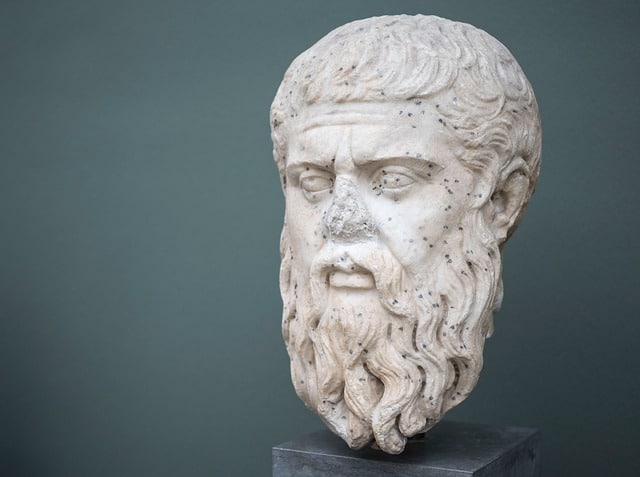
Neoplatonism was responsible for updating the Platonic postulates.
Neoplatonism was a philosophical school that, influenced by Eastern movements, updated Platonic postulates . The rise of Neoplatonism occurred at the beginning of this era in the city of Alexandria .
Before moving forward with Neoplatonism, it is important to mention that the doctrine promoted by Plato 's disciples in the 1st century BC is known as Platonism . Through thinkers such as Plotinus , a Hellenistic philosopher from the 3rd century considered the founder of Neoplatonism, Platonism achieved great impact and even had influence in Judaism , Christianity and other religions .
What is Neoplatonism
Starting from Plato 's ideas, therefore, Neoplatonism generated new thoughts. Between the 3rd and 6th centuries it had an important impact, being considered one of the last exponents of ancient paganism.
It should be noted that Neoplatonism was a heterogeneous movement. Broadly speaking, he sought to synthesize Plato 's propositions, especially those linked to the theory of forms.
The material vs. the spiritual
Neoplatonism posed an opposition between the material and the spiritual, linking both through mediating agents who are responsible for the transmission of divine power. The Neoplatonists promoted asceticism to free themselves from the command of the senses.
Many experts highlight the importance of Neoplatonism in the beginnings of Christianity . This is because Christian thinkers relied on aspects of Neoplatonism to support their idea of the soul.
Platonic idealism and the religious forces that emerged in the East , in short, merged into Neoplatonism, understood as an attempt by the pagan universe to save its existence or at least have a presence in new times .
supreme reality
From a strictly philosophical point of view, everything that exists arises from a unity known as One , and is a great emptiness or supreme reality that emanates all others. Logos is the name of the first being that emanates this reality, and is the source of the things and ideas that enter the framework of possibility; It is also known as Intelligence or Word . This, for its part, emanates the Soul , which is the origin of matter and movement.
The three form the group of hypostases of Neoplatonism, which recognizes Plotinus ' theory as three primordial realities. In any case, the One is always the fundamental principle, the next two are the hypostases and the rest are realities that derive from these.

Plato's thought was the starting point of Neoplatonism.
The three hypostases
According to Plotinus, the One cannot be described because it is equivalent to the whole, the infinite or God. Put another way, it is the beginning and the end and therefore cannot be expressed in a finite number of words. So much so that the author considers that it is not possible for any human being to understand this concept either.
Regarding the aforementioned hypostasis as Logos, it is important to add that many call it nous , a term that refers to the spirit, the purest portion of the soul . According to Plato, it was equivalent to intelligence. For Plotinus, the nous would be the light if the One were the Sun, as a means for the latter to be visible, although it arises from it.
Thirdly, we have the second hypostasis of Neoplatonism, the soul, which has a divided nature : on the one hand, it pulls the nous, while on the other it creates or shapes the world of the senses. In other words, nature arises from the soul.
